CIA Sponsored Terror, Civil Liberties, Criminalizing Dissent, Human Rights, Iraq Veterans, Iraq War, Political Prisoner, Torture, Uncategorized, War Resister
Podcast: Play in new window | Download
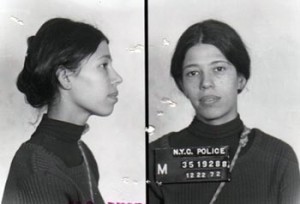
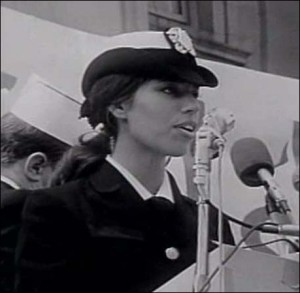
50 Year Anniversary of the Vietnam War: Professor Susan Schnall
From 1967 to 1969, during the Vietnam War Lieutenant J.G. Susan Schnall was a Navy nurse stationed at a hospital in Oakland California treating wounded marines. She and other soldiers threw anti-war leaflets out of airplane on to an Army base in California. For this she received a general court martial and was discharged from the Navy in 1969. She’s an expert on the effects of Agent Orange. The chemical used by the United States to commit chemical warfare against the Vietnamese people and their land.
Guest- Susan Schnall, co-coordinator of the Vietnam Agent Orange Relief & Responsibility Campaign, chairing the legislative outreach and science group. She is currently a professor in Health Policy and Planning at NYU and a member of Vietnam Veterans Against the War, Veterans for Peace and American Public Health Association. In 1969 she was tried and convicted by a general court martial for her anti-war activities while a member of the US Navy.
—-
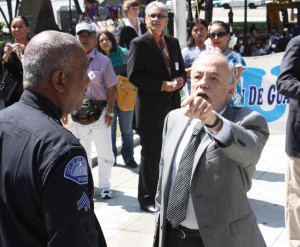
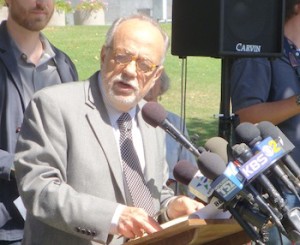
50 Year Anniversary of the Vietnam War: Attorney Jim Lafferty
When the United States government escalated its war in Vietnam in 1965, Detroit Attorney Jim Lafferty who is a leader of the National Lawyers Guild and an attorney representing draft resisters became active in what was unfolded as the mass movement opposing the American war. Jim was one of the five national coordinators of the National Peace Action Coalition and played a central role in the huge anti-war demonstrations in 1967, 1969 and 1971.
Guest – Jim Lafferty, has been a movement lawyer, political organizer, and legal worker for the past 50 years. He served as NLG executive director from 1963 to 1967, during the peak of Guild work in the South. In Detroit, he was a founding partner of Lafferty, Reosti, Jabara, James, Stickgold, Soble and Smith, a law firm which, according to his Red Squad file, represented “every left-wing, civil rights, anti-war, and black nationalist group in Detroit.” Jim is also a strident antiwar activist. He established numerous draft counseling centers in the Midwest, helped organized some of the largest Vietnam War protests, and, when Iraq invasions loomed in both the 90s and the aughts, he coordinated some of the largest anti-war coalitions. Jim has served as the Los Angeles chapter’s Executive Director for over two decades. Most recently, he headed his chapter’s well-publicized support for Occupy LA.
—–
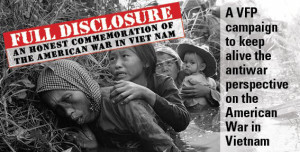
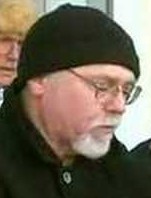
50 Year Anniversary of the Vietnam War: Doug Rawlings
As we commemorate the 50th anniversary of the American war in Vietnam, many believe that the US government is attempting to reshape the historical record, omitting the perspectives of antiwar protesters and of disaffected and nonconforming soldiers and their families. Also missing are the narratives of Southeast Asians who suffered from misguided and disastrous foreign policies. Veterans for Peace has launched a Full Disclosure campaign calling on Americans to write letters to the soldiers whose names appear on the Vietnam Veterans Memorial in Washington DC. They urge everyone with a role in the Vietnam war–be it war resister, combatant, family member, conscientious objector or citizen, to share their memories and perspectives.
Guest – Doug Rawlings, founding member of Veterans For Peace and was an active member in early years of the organization, became Maine chapter president for 5 years, and served as chapter secretary. He was on the planning committee for the annual PTSD symposia and, planning committee for the 25th anniversary national convention. Rawlings was drafted in the fall, 1968 and served in Vietnam from July 1969 to August, 1970, 7/15th Artillery. He was a secondary school teacher for six years and has been teaching at the University of Maine at Farmington for close to thirty years.
——————————————–
CIA Sponsored Terror, Civil Liberties, Human Rights, Iraq Veterans, Iraq War, Military Tribunal, NSA Spying, Political Prisoner, Prison Industry, Torture, Truth to Power, Uncategorized
Podcast: Play in new window | Download
Updates:
- Heidi Boghosian: Attorneys Make United Nations Urgent Appeal Request For Mumia Abu-Jamal
—-
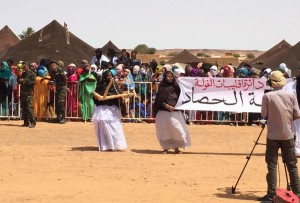

FiSaraha International Film Festival
Co-host, attorney Michael Ratner recently attended the 11th FiSaraha International Film Festival in Africa’s Western Sahara Desert. He bring us up to date on the festival and the larger issue of Sahrawi refugee camps in Southwestern Algeria. He also reminds about the anniversary of the United States’ contra torture and murder of Ben Linder in Nicaragua.
Law and Disorder Co-host Attorney Michael Ratner, President Emeritus of the Center for Constitutional Rights (CCR), a non-profit human rights litigation organization based in New York City and president of the European Center for Constitutional and Human Rights (ECCHR) based in Berlin. Ratner and CCR are currently the attorneys in the United States for publishers Julian Assange and Wikileaks. He was co-counsel in representing the Guantanamo Bay detainees in the United States Supreme Court, where, in June 2004, the court decided his clients have the right to test the legality of their detentions in court. Ratner is also a past president of the National Lawyers Guild and the author of numerous books and articles, including the books Who Killed Che? How the CIA Got Away With Murder, The Trial of Donald Rumsfeld: A Prosecution by Book, Against War with Iraq and Guantanamo: What the World Should Know, as well as a textbook on international human rights.
——
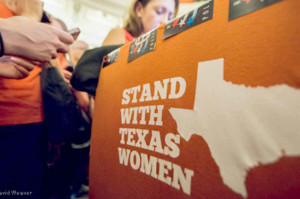

ACLU Lawsuit To Make Catholic Groups Provide Abortions To “Illegal” Immigrants
After hearing reports that Catholic bishops are prohibiting Catholic charities from allowing undocumented immigrant teenagers in their care to access contraception and abortion services—even in cases of rape—the ACLU recently filed a lawsuit to obtain federal government records. The group seeks documents related to reproductive healthcare policy for unaccompanied immigrant children in the care of federally funded Catholic agencies, which do not believe in abortion. Nearly 60,000 unaccompanied minors illegally crossed over from Mexico border in 2014. Approximately one third were young girls, an astonishing 80% of whom were victims of sexual assault.
The government contracts with the United States Conference of Catholic Bishops to care for those children until they can either reunite with a relative or face an immigration hearing. In total the Conference has received $73 million overall from the government—with $10 million allocated for the care of unaccompanied minors in 2013 alone.
The Conference has objected to a regulation proposed by the Obama administration mandating that contractors provide abortions to immigrants who have been raped. In response to the ACLU’s request, the Conference asserts that they are within their rights to exercise religious freedom while taking care of the minors.
Guest – Brigitte Amiri, Senior Staff Attorney at the ACLU’s Reproductive Freedom Project. Brigitte is currently litigating multiple cases, including a challenge to South Dakota’s law that requires women seeking abortion to first visit a crisis pregnancy center before obtaining an abortion, a restriction on Medicaid funding for abortion in Alaska, and a law in Texas that has forced one-third of the abortion providers to close their doors. Brigitte is also heavily involved in the challenges to the federal contraception benefit, and was one of the coordinators for the amicus briefs in the Supreme Court. Brigitte is an adjunct assistant professor at New York Law School, and has been an adjunct assistant professor at Hunter College.
—-
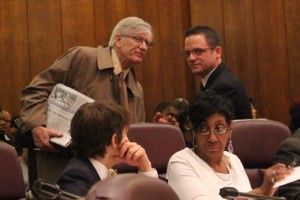
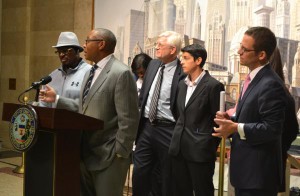
Proposal To Award Chicago Police Torture Victims Reparations
Victims of police torture under former Chicago Police Commander Jon Burge will share $5.5 million, receive an apology and have their story taught in school under a reparations package proposed recently. The proposal is expected to pass when the council votes on it this month.
More than 100 people who accused Burge and officers under his command of torture—from cattle-prod shockings, phone book beatings prods, and suffocation with bags until false confessions were given—over nearly two decades ending in 1991. While some have already settled for thousands or millions of dollars, the remaining dozens can each receive up to $100,000 under the proposed ordinance. More than $100 million has already been paid over the years in court-ordered judgments, settlements and legal fees. Amnesty International USA lauded the proposal, which it said was unlike anything a U.S. municipality has ever introduced.
Besides a provision that calls for teaching the Burge torture cases to 8th and 10th graders in public school history classes, the ordinance includes a formal apology from the City Council, and psychological counseling and other benefits such as free tuition at community colleges. In recognition that the torture, and in many cases wrongful convictions and lengthy prison sentences, has impacted victims and their families, the ordinance extends some benefits to victims’ children or grandchildren.
Burge, 67, was fired from the Chicago Police Department in 1993. He was never criminally charged with torture, but was convicted in 2010 of lying about torture in a civil case and served 4.5 years in federal custody. Still drawing his pension, he was released from a Florida halfway house in February.
Guest – Attorney G. Flint Taylor, a graduate of Brown University and Northwestern Law School, is a founding partner of the People’s Law Office in Chicago, an office which has been dedicated to litigating civil rights, police violence, government misconduct, and death penalty cases for more than 40 years
—————————————————
Afghanistan War, Civil Liberties, Criminalizing Dissent, Habeas Corpus, Human Rights, Iran, Iraq Veterans, Iraq War, Political Prisoner, Prison Industry, Surveillance, War Resister
Podcast: Play in new window | Download
Updates:
- Attorney Heidi Boghosian Tells Of How She And Johanna Fernandez Found Out Mumia Abu-Jamal Was Rushed To Local Health Facility
- Campaign To Bring Mumia Home
- Attorney Michael Ratner: Hobby Lobby State Religious Freedom Acts
- Attorney Michael Ratner: Palestine Joins The ICC
- Attorney Michael Ratner: Obama Issues Executive Order On Hackers
—–
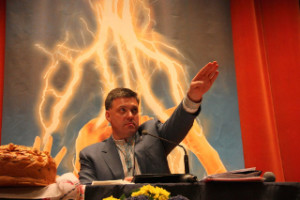

Why The Rise Of Fascism Is Again The Issue
Fascism has taken on many forms through the rise and fall of empires. One aspect of modern day fascism can seen as propaganda, lies and deceit used as political leverage to eventually absorb sovereign states. Our guest John Pilger lays out the swath carved by fascism in the last 70 years in his recent article Why The Rise Of Fascism Is Again The Issue. Using the word carefully, Pilger describes a new kind of fascism, centered in America but based on the big lie of war and aggression. Pilger documents key events from the Holocaust to Libya to Serbia, to Yugoslavia, to Afghanistan in the 1970s, to Vietnam and up to the current revival of fascism in the heart of Europe. We get a historic perspective from John Pilger, going all the way back to the second world war. If you think the wars in Iraq, Afghanistan, Yugoslavia, Libya and now the Ukraine occur by happenstance, you are mistaken says Pilger, an Australian-British journalist based in London. These are part of the American effort to become the global power.
Guest – John Pilger, an Australian-British journalist based in London. John has worked in many facets of journalism, including a correspondent in the Vietnam War, the Middle East Desk for Reuters in London, a documentary film maker, and a producer for the Independent Television Network in London. Pilger is known for his conscience, bravery and acute historical insight. His articles appear worldwide in newspapers such as the Guardian, the Independent, the New York Times, the Los Angeles Times.
————————————————————–

Is Law and Disorder important to you? Consider a tax deductible donation to the show. By making a donation, you’ll be helping Law and Disorder continue to provide the consistent high quality content on some of the most pressing legal, human rights and international issues. This radio show is now a sponsored project of Fractured Atlas, a non-profit arts service organization. Contributions for the charitable purposes of Law and Disorder must be made payable to Fractured Atlas only and are tax-deductible to the extent permitted by law.
CIA Sponsored Terror, Civil Liberties, Criminalizing Dissent, Crony Capitalism, Habeas Corpus, Human Rights, Iraq War, Military Tribunal, Political Prisoner, Prison Industry, Targeting Muslims, Truth to Power, War Resister
Podcast: Play in new window | Download
Updates:
- FBI: If You Give Us Assata Shakur, We’ll Free The Cuban Five
- Michael Ratner: Massive CIW March St. Petersburg, Florida 2015
- Alliance For Fair Food
—-
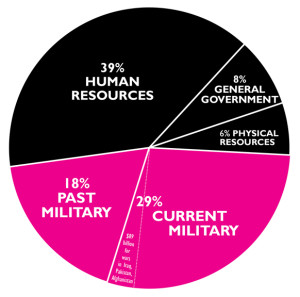
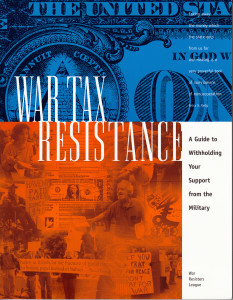
War Tax Resistance
As April 15 draws near, some Americans engage in the practice of war tax resistance, refusing to pay some or all of their federal income tax. It’s an act of civil disobedience with a proud history in this country. Notable war tax resisters included Henry David Thoreau who refused to pay his poll tax during the Mexican-American war. In the 1960s and 70s, many Vietnam war protesters engaged in the practice, including Norman Mailer, Howard Zinn, James Baldwin and Joan Baez. While individuals refusing to pay war taxes cite the refusal as a moral imperative-even citing international law to bolster this assertion—it’s not surprising that the Internal Revenue Service considers the refusal to pay such taxes as illegal.
Ruth Benn:
- In war tax resistance we tend to use the War Resisters League chart where your income tax money really goes and the calculations from the War Resisters League over the years have been around 50 percent.
- About 27 percent is current military so that’s paying for the wars and its buying the weapons for the next wars and all of those things that the Pentagon does.
- The “past military” is mainly for the debt and then the money that’s set aside for veterans.
- The nuclear weapons program which they are increasing over the coming 10 years, modernizing weapons and modernizing delivery systems. Obama is increasing that money for the nuclear weapons. That’s in the Department of Energy.
- We have the Department of Homeland Security. That is a lot of armed people also. The TSA, the militarization of the border. Homeland Security is giving those grants to local communities in the U.S. that are getting these military weapons.
- We have 500 billion this year for veterans and past military. That’s only going to add up.
- Basically, (war tax resistance) is similar to conscientious objection in terms of people who refuse to go into the military or refused the draft. So this is a refusal to have my tax dollars drafted. A refusal to pay income taxes that go into this pie of the military budget.
- There was a particular tax put on people in WW2. A stamp that people had to buy that was on their cars that supported war.
- (Famous tax resisters) We tend to go back to Henry David Thoreau of course with his one dollar that resulted in on the duty of civil disobedience.
- I always say going throughout history taxes first tend to be put on people because somebody wants to fight somebody. A government wants to go to war, that’s centuries back.
- The Vietnam War of course was the biggest time for tax resistance when it really was a strong part of the peace movement.
- The campaign during Vietnam to resist the telephone tax. A tax that was put on and raised during Vietnam. It was put on to 10 percent just to pay for the wars.
- People would owe 7.00 dollars in phone tax and some of them had their houses seized, some had their bicycles and cars seized.
- Within the network of war tax resisters and I hesitate to call it a movement these days, there are people who do a whole range of things. There are people who live on a very low income which is a legal way to do it. The cut off for filing and owing taxes is around 10 thousand dollars for a single person.
- There are people who are more adept at using credits and deductions to lower their taxable income.
- I think in ’87 I started very consistently filing and refusing to pay. You get a lot of letters. I have files and files of collection letters, of course they add up interest and penalties.
- Now I’m self-employed, the IRS can do things like garnish salaries. Over the years I figured out how to live in a way that makes it harder for them to collect. Not that they couldn’t make my life difficult.
- Mostly the IRS would like to get the money than prosecute people.
- I got active in the peace movement with the American Friends Service Committee. I’m not a Quaker myself but war tax resistance tends to known pretty well in the Quaker community.
- Usually you’ve been active (in peace movement) for a while and then you go . . oh, I’m paying for this. I’m paying for what I’m fighting against.
- nwtrcc.org
- War Tax Resisters Guide – The Book.
Guest – Ruth Benn, Coordinator of the National War Tax Resistance Coordinating Committee. Along with Ed Hedemann, she co-edited the fourth and fifth editions of the book “War Tax Resistance: A Guide to Withholding Your Support from the Military, published by the War Resisters League.”
—–
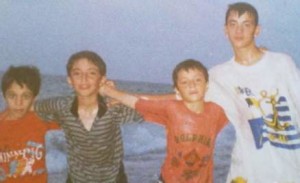
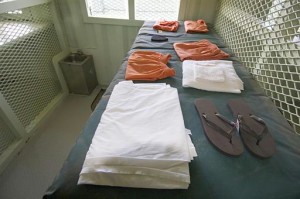
Life After Guantanamo: A Father And Son’s Story
In the weeks after September 11, 2001, the United States gave bundles of cash to Afghan war lords and the Pakistan government to assist in capturing suspected Taliban and Al-Qaeda fighters. Hundreds of men were turned over to U.S. custody often without evidence. This was an unfortunate starting point of how human lives were destroyed to as some suggest, justify an illegal war launched by the Bush Administration. Center for Constitutional Rights, senior staff attorney Pardiss Kebriaei’s Harper’s Magazine article titled Life After Guantanamo: A Father and Son’s Story traces the human toll of how her clients were wrongly imprisoned. After being picked up in Pakistan, sent back to Afghanistan, detained in Kandahar, Abdul Nasser Khantumani and his son Muhammed were interrogated by the United States and sent to Guantanamo Bay Prison in Cuba.
Attorney Pardiss Kebriaei:
- I started in 2007 and it took me year to be able to go down to the base. I went to down in mid 2008, that was the first time I met Muhammad.
- Muhammed was the son, he was a teenager and he was taken into U.S. custody. By the time I met him, he had been at Guantanamo for 6 years. 6 years without charge.
- What I say in the piece is he started breaking down, really kind of cracking in 2005.
- He was saying things like – I don’t care if I’m here another 5 years, another 10 years, I’m never getting out.
- He’d been held in solitary confinement for 2 years at that point, and there was this additional aspect of the way his relationship with his father was used to traumatize him.
- They were captured together, transferred to Guantanamo together but then, pretty much held apart in prison.
- In November of 2008 we met then in December he cut his wrists.
- He doesn’t call it suicide because he didn’t want to die. He just didn’t know what to do.
- We filed an emergency motion with the court, asking the court to move him out of solitary to get him close to his father, to do something.
- The latest hunger strike in 2013, they denied it was happening.
- Muhammed was young and he was really vocal and loud about his torture. I remember hearing him yell and scream.
- Abdul Nasser, his pain was quieter. There was a different kind of pain that left a wife behind or children behind. Abdul Nassar thought a lot about the rest of his family.
- We know that the CIA was paying millions of the dollars to the Pakistani government and Afghani war lords to profile and turn people over, basically sell them into U.S. custody.
- They came into U.S. hands because they profiled and unilaterally deemed by President Bush and Rumsfeld to be enemy combatants without any real evidence of wrongdoing.
- We know that happened and its not just groups like CCR saying that.
- The way that decisions are made and people are transferred (from Guantanamo Bay Prison) is such a lottery.
- I think Abdul Nassar appeared to be more of a burden frankly to them, because he was older and in ill health. They didn’t take him. They wanted a younger guy who they thought would be easier to resettle.
- Part of the point of the story was to shed light on just what life is like after Guantanamo.
- Abdul Nassar has not seen his wife since 2001. He hasn’t seen his other children since 2001. He hasn’t seen Muhammed since that day in 2009.
- http://ccrjustice.org/reunificationafterguantanamo
Guest – Pardiss Kebriaei, Senior staff attorney with the Center for Constitutional Rights, which she joined in 2007. Her work focuses on challenging government abuses post-9/11, including in the areas of “targeted killing“ and unjust detentions at Guantanamo and in the federal system. She is lead counsel for CCR in Al-Aulaqi v. Panetta, which seeks accountability for the killing of three American citizens in U.S. drone strikes in Yemen, and was counsel in Al-Aulaqi v. Obama, which challenged the authorization for the targeting of an American citizen placed on government “kill lists.” She represents men currently and formerly detained at Guantanamo in their efforts for release and reintegration, and represented the families of two men who died at the base in their lawsuit for accountability, Al-Zahrani v. Rumsfeld. She also represents Fahad Hashmi, who pled to material support for terrorism after years in pre-trial solitary confinement and Special Administrative Measures, in his efforts to challenge his continuing solitary confinement in a federal “supermax” prison.
——————————————————

Is Law and Disorder important to you? Consider a tax deductible donation to the show. By making a donation, you’ll be helping Law and Disorder continue to provide the consistent high quality content on some of the most pressing legal, human rights and international issues. This radio show is now a sponsored project of Fractured Atlas, a non-profit arts service organization. Contributions for the charitable purposes of Law and Disorder must be made payable to Fractured Atlas only and are tax-deductible to the extent permitted by law.
CIA Sponsored Terror, Civil Liberties, Criminalizing Dissent, Crony Capitalism, Gaza, Human Rights, Iraq War, NSA Spying, Political Prisoner, Surveillance, Targeting Muslims, Torture
Podcast: Play in new window | Download
Updates:
- Michael Ratner Updates On Julian Assange Case: You Can’t Just Keep A Case Going In Custody Essentially In The Embassy
- Julian Assange’s Case Could Go To European Court of Human Rights – Assange Is Being Arbitrarily Detained And Investigation Not Proceeding
- Eight Million Documents On Wikileaks In Highly Searchable Format
- Google Turns Over Wikileak Attorney Client Emails to U.S. Government.
- Federal Judge Denies EPIC’s FOIA Request On Government Surveillance Of Wikileaks Reporters – Denied Under Continuing Investigation Exemption
—–
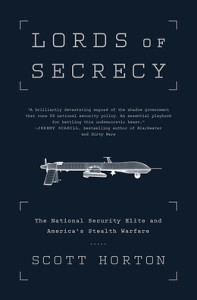
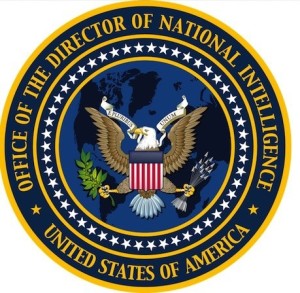
Lords of Secrecy:The National Security Elite and America’s Stealth Warfare
Nearly half a century ago a majority of Americans were concerned whether their country would go to war. It was a time when national debates and public discussions engaged America’s political consciousness. That’s not the case so much these days says our guest author and attorney Scott Horton. His recently published book Lords of Secrecy:The National Security Elite and America’s Stealth Warfare examines how secrecy within the United States government has corrupted fundamental systems of democracy. Scott Horton also surveys the legal authority that the current national security elite have based decisions to torture, wage war and subcontract private soldiers. When operating in secret, mistakes, excesses and crimes committed in the process are often kept quiet.
Attorney Scott Horton:
- Dick Cheney one of the longest serving secretaries of defense, because he had a peculiar atitude about secrecy. He manipulated the news secrecy all the time to give cover to claims and statements he made that turned out not to be true. These claims very frequently matters of the highest consequence.
- The entire case to go to war in Iraq which was in fact led by Dick Cheney rested on claims that they had weapons of mass destruction and that they had aligned themselves and were operating with Al-Qaeda that’s how we got the connection to 911. Those claims were very aggressively put forward by Dick Cheney. They turned out to be completely false. He parried any attempts to challenge them by saying all the intelligence we have on that is . . . secret, so I can’t share it with you.
- Of course, in good time we learned there wasn’t any intelligence or information that supported these claims.
- The lords of secrecy consist of the higher echelon officers of the national intelligence and security bureaucracy and they’re the people who have under American law, the power to create secrets using the classification authority.
- I make the case that they use that power very aggressively, very effectively to make themselves the ultimate decision makers on key national security issues and to remove those matters from the democratic, political process.
- It’s on the lords of secrecy who really influence the final decision when its made by the executive.
- The lords of secrecy, the people who wield the classification power also are part of a revolving door in Washington. They’re in government service, they leave that, they go to work as directors and senior officers of major contractors.
- Those contractors hold a half trillion dollars in contract business every year paid for by tax payers and they also make enormous campaign donations.
- Washington D.C. has emerged as the wealthiest standard metropolitan statistical area in the United States and that’s on the strength of the position of contractors and their ability to suck our treasury dry.
- What the American people don’t know about, they don’t form opinions about. They don’t conjutate about, they don’t become engaged with. That shows how secrecy and this other stuff are a very potent narcotic against democracy effectively, causing democracy to fade away while the national security elites are at the driver’s wheel making all the key decisions.
- I think it allows us to make war without going through the constitutional process.
- It’s really vague on how this go-to-war decision is supposed to be made. There’s the appropriation authority of Congress, there’s the Commander in Chief power of the executive, there’s the power to declare war, and exactly how those rights and powers play out in any given situation really isn’t clear.
- The bottom line is the US waging war overseas without the people of the United States having taken a decision to do so.
- My book has gotten much stronger attention in Europe than it has in the United States.
- A big part of the problem we have is the way national security and particularly intelligence community matters are reported in the United States.
- One thing I looked at the coverage of the drone war in Pakistan and I found very clearly Americans are actually the most poorly informed community globally on this issue.
- The media can’t really act without the whistleblower. It really comes down to the whistleblower being the last and best hope.
- The problem is national security whistleblowers don’t get a fair trial. They wind up being abused, mistreated.
- Let the Justice Department explain why they decided that Petraeus a slap on the fingers, nothing too serious, while they want to throw the book at Snowden.
- Let them give the rationale for the distinction between these cases. They’ve never done that.
Guest – Scott Horton, human rights lawyer and contributing editor to Harper’s Magazine. Scott’s column – No Comment. He graduated Texas Law School in Austin with a JD and was a partner in a large New York law firm, Patterson Belknap Webb & Tyler. His new book Lords of Secrecy The National Security Elite and America’s Stealth Foreign Policy.
—–
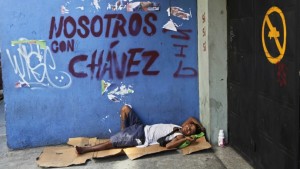
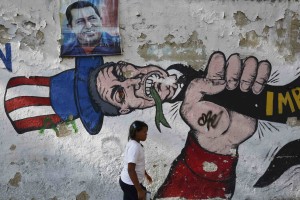
US Sanctions Against Maduro Government Officials
In its continuation of a decades long overthrow of the Venezuelan government, the United States issued new sanctions against Venezuelan government officials who the United States claims are involved in violating human rights guarantees. President Barack Obama issued an order declaring a national emergency with respect to Venezuela. The order lists certain key Venezuelan officials and said that any financial transactions with those officials are barred. This is typical of what the United States does to officials of government it doesn’t like, whether it was Nicaragua in the ’80s or Cuba since 1959 or 1960. These sanctions must also be seen the light of short-lived 2002 military coup in Venezuela in which the United States was deeply involved. Today we want to talk about the broader context of these actions and why the U.S. is continually trying to destabilize Venezuela.
Mark Weisbrot:
- It is pretty crazy that they have to declare Venezuela as an extraordinary threat.
- You don’t see any of the reporters asking the Whitehouse . . . what are you talking about?
- If you look at the Community of Latin American and Caribbean States for example, that is the alternative to the OAS, that was created a few years ago in response to US unpleasant actions in the hemisphere.
- Between 2000-2010 the Columbian military over 5700 innocent civilians, murdered them, and the United States just gave them more military aid.
- I was there during the protest a year ago, and of course it was very different from what I saw . . I was actually kinda shocked. I walked all over and took the metro all over Caracas and the only demonstration you saw were little uprisings in the richest neighborhoods.
- The people most affected the shortages, the ones that go and have to wait in line, can’t afford to buy anything in the black market.
- The poor and the working people, they haven’t protest because they mostly support the government.
- That’s a little bit of a disconnect from what you see in the press.
- This idea that the protests are related to the shortages doesn’t hold up when you see who’s actually protesting. These people have servants who do their shopping, wait in the lines.
- Upper middle class, they have servants, they have storage space.
- These sanctions are probably illegal under International Law.
- Again, there are things that are questionable, things that I wouldn’t try to defend but to create this picture, a very exaggerated picture that’s created here in the media because the U.S. wants to overthrow the government there I think is very unfortunate.
- Venezuela has been a target by the United States for a regime change for at least 13 years.
- A lot of people know if the opposition gets power, its just going to get worse for them.
- Venezuela is not facing a real balance of payment crisis, where they can’t pay for their import. They just have a dysfunctional exchange rate system and they have a fair amount of sabotage too.
Guest – Mark Weisbrot co-director of the Center for Economic and Policy Research, in Washington, D.C. to give us an update. He writes a weekly column for The Guardian Unlimited (U.K.), and a regular column on economic and policy issues that is distributed to over 550 newspapers by the Tribune Content Agency.
——————————————–
CIA Sponsored Terror, Civil Liberties, Criminalizing Dissent, Habeas Corpus, Human Rights, Iraq Veterans, Iraq War, Military Tribunal, Political Prisoner, Targeting Muslims, Torture, War Resister
Podcast: Play in new window | Download
Updates:
—–

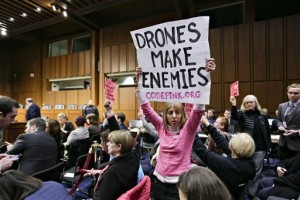
ISIS and The Anti-War Movement
Last June, the United States sent more military soldiers to Iraq and carried out airstrikes to stop the advance of the Islamic State of Iraq and the Levant known as ISIS. The US, Western Europe, Saudi Arabia and Arab Gulf policy is to overthrow Syrian President Bashar al-Assad which is also the goal of ISIS and other jihadis in Syria. ISIS’s membership may be close to 15 thousand members, half of what the CIA estimates. ISIS is led by a core of people who fought the U.S. in Iraq, fought the Iraq Army back in 2003 and then in 2011 fought in Syria. Last week our own Michael Ratner reported how the U.S. could be given leave to make war everywhere if President Obama’s request for AUMF is granted by a US Congress. What are the demands of the US peace movement?
Attorney Jim Lafferty:
- It was U.S. military strategy in the Middle East to begin with and past U.S. military action in that part of the world, especially in Iraq that provided the primary catalyst for the growth of ISIS.
- We destroyed the secular governments in Iraq and Libya that created the political space for ISIS and other right wing forces to grow.
- ISIS filled the governing vacuum took advantage of these ethnic divisions angered at the U.S. and steadily gained strength thereafter.
- If you think about it, we spent the last 40 or 50 years destroying leftist and secular, anti-imperialist movements all over that region of the world.
- Two weeks ago the Pentagon announced their sending 4000 troops with very heavy weaponry to Kuwait.
- The U.S. Army has already set up a division headquarters in Iraq. A division consists of 20 thousand troops.
- The people that are having the most success in fighting a Syrian government right now is ISIS.
- The question is not should they be stopped. The question is what will be effective in stopping them.
- There is great unity in the anti-war movement. They’ve got unified actions planned for later this month in Washington DC.
- The anti-war movement is going to be tough for the anti-war movement because the propaganda machine, the mainstream media in this country has done its job in pandering by showing despicable pictures.
- What we don’t see is Saudi Arabia our staunchest ally, executes 20-25 people by beheading every month.
- Cindy Sheehan, is setting up a Camp Casey at the Capitol. All the anti-war groups are holding a mass teach in on this very issue we’re talking about now.
- First of all a nuclear power like Israel getting all exorcised about the fact that somewhere down the road a neighboring country might have the same weapons it has.
- Pardon me if I can’t get terribly excited about that. We shouldn’t have any country in the world with nuclear weapons.
- In addition to everything else (Netanyahu) is lying about the threat if it were a threat. To come to the U.S. Congress to give that bloviating speech where he offers nothing new.
- He offers no alternative to what the administration is trying to do and is apparently making some progress in doing and is hailed as a hero by one side of the aisle is really quite appalling.
- Answer.org
Guest- Attorney Jim Lafferty, Executive director of the National Lawyers Guild in Los Angeles and host of The Lawyers Guild Show on Pacifica’s KPFK 90. 7 FM.
—-
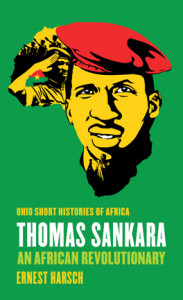
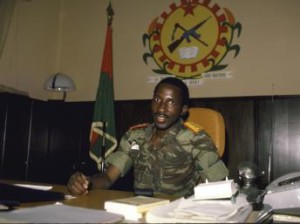
Thomas Sankara: An African Revolutionary
As president of the Burkino Faso, one of Africa’s poorest countries, Thomas Sankara was often called the African Che Guevara. In 1987, he was assassinated during a military coup that took down his government. However, Sankara’s economic and social policies left an important mark not only on his country but across Africa. Sankara was a Marxist and openly sought independence from France and at the same time he was building a pan-African unity.
Professor Ernest Harsch:
- He was the president of Burkino Faso from 1983 to 1987, a very short period of time.
- He was a revolutionary. Everybody acknowledged that at the time especially the French who greatly disliked him.
- The U.S. wasn’t too happy with him. He wanted to stop in Atlanta to meet with Andrew Young during his visit to the UN General Assembly. They didn’t allow him to make that stop. So he spoke in Harlem instead.
- It’s a small west African country, not even that many experts on Africa know that much about it. He was in power for about 4 years and he was overthrown by a military coup.
- I think for people that are interested in progressive change its always useful in seeing how others elsewhere in the world are fighting against oppression, are fighting for their rights and occasionally actually able to make some change.
- It’s also useful to learn about what kind of leadership can help people do that.
- He wasn’t a grassroots activist. He came out of the military. He was a captain. He got radicalized in the military and because of the context of his country which was extremely poor and under-developed, backward and subservient to the French who been their formal colonial power, very corrupt both military and civilian politicians over the decades.
- He’s representing a newer generation where that initial idealism about independence will bring all sorts of changes. He’s speaking to the ills of formally independent countries that are still subservient to their colonial masters and still haven’t found a way to break out of the trap of underdevelopment and external economic domination.
- He’s speaking to a new generation that still resonates today which is young people who are fed up with the way things are.
- They’re fed up with the corruption of their leaders whether they’re elected or not elected.
- You travel through west Africa you see Sankara t-shirts.
- The first time I met him was in New York. The guy was direct. He listened to what you had to say. He thought about it. I’ve never met anybody who was so quick. I mean he was witty.
- The other times I met him in Burkina. The first time was a long interview. The other times he didn’t want to be interviewed, he just wanted to talk about politics.
- Up to that time, nobody hand promoted or named so many women to cabinet position. One of them now is the current minister of justice.
- They tried to tackle some restrictions on women at the local level. It’s hard they made a small dent in it. They fought against female genital mutilation, the right to divorce by mutual consent.
- It (the country) was called Upper Volta which was a colonial name. They wanted something African and Burkina Faso, the words are from two local African languages basically means the land of the upright, or the uncorruptible people. The people are known as Burkinabe and Burkinabe comes from a third African language.
- Before he became president he was briefly a prime minister in a coalition government. His first trip was to Libya.
- Then he went to the non-alliance summit in New Delhi and gave this very fiery speech basically solidarizing with the Cuban revolution, with the Nicaraguans, with the Western Saharans, with the new Calidonians. He clearly aligned himself with the anti-imperialist, pro-third world, pro-development wing, within the non-alliance movement.
- The French didn’t like that. So, they told some their people locally, look let’s get rid of this guy.
- They had an internal coup. He was arrested. He was in prison for a while but they couldn’t sustain that. He was too popular. He became president.
- He was only 33 when he became president, so this was a youthful leadership.
Guest – Professor Ernest Harsch has taught courses on African development and political instability in the Sahel and is a research scholar affiliated with the University’s Institute of African Studies. He earned his PhD in Sociology from the New School for Social Research in New York. Throughout a professional career as a journalist, he wrote mainly on international events, with reporting on Asia, the Caribbean, and Eastern Europe, but most extensively on Africa.
—————————————————–

Please help support Law and Disorder by clicking on Fractured Atlas graphic. This radio show is now a sponsored project of Fractured Atlas, a non-profit arts service organization. Contributions for the charitable purposes of Law and Disorder must be made payable to Fractured Atlas only and are tax-deductible to the extent permitted by law. You can donate as little as 5.00 a month.

























